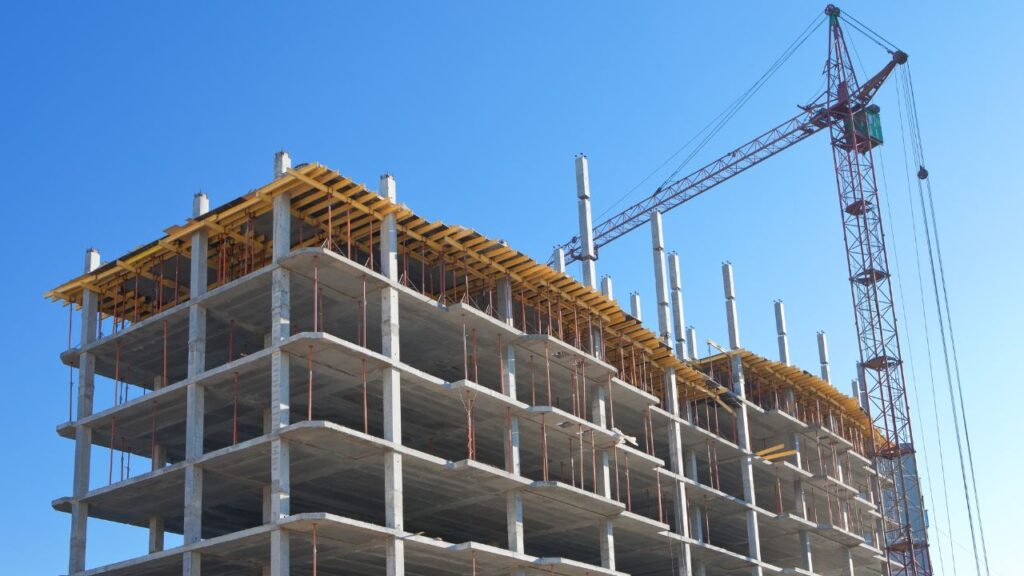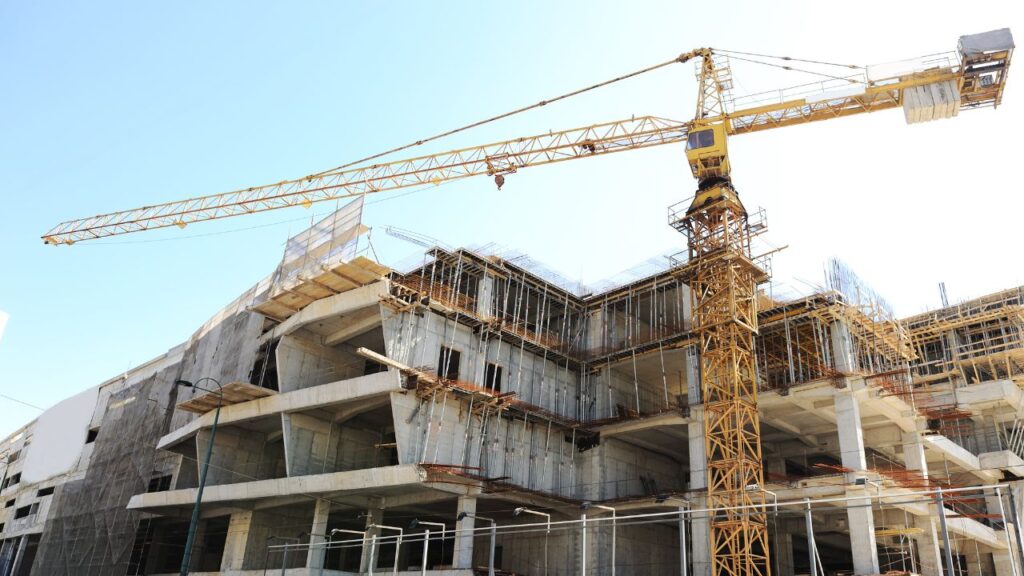Boost Your Construction Bids – Request a Precision Estimate!
- Accurancy
- Efficiency
- Transparency
- Customization
- Time Saving
- Professionalism
- Cost Control

Construction projects, especially remodeling endeavors, are intricate puzzles that demand meticulous planning and budgeting. At the heart of this process is the construction estimator, a professional tasked with unraveling the complexities of costs and resources. In this article, we will delve into the world of construction estimating, specifically focusing on its pivotal role for remodeling contractors.

Construction estimators commence their work by meticulously examining project plans and specifications. This involves a detailed scrutiny of architectural drawings, blueprints, and any relevant documents outlining the scope of work. By understanding the intricacies of the project, the estimator lays the foundation for an accurate cost assessment.

Make Informed Design Decisions Showcase Your Design Ideas
Get RenderingOne of the primary responsibilities of a construction estimator is to calculate the costs associated with materials and labor. This involves researching current market prices, considering the quality of materials, and factoring in the intricacies of the remodeling process. A skilled estimator can decipher the nuances, ensuring a realistic projection of expenses.
Construction is a collaborative effort, and estimators play a crucial role in fostering effective communication between contractors and suppliers. This involves negotiating prices, ensuring the availability of materials, and building relationships that contribute to the overall success of the project.

In the digital age, construction estimators leverage advanced software tools to streamline their processes. Modern estimating software offers features that enhance accuracy, efficiency, and collaboration. These tools include 3D modeling software, cost databases, and project management platforms. By incorporating technology into their workflow, estimators can provide more detailed and accurate cost assessments.
Remodeling projects often present unique challenges related to site conditions and accessibility. Construction estimators must account for these factors, considering the impact on logistics, material delivery, and labor efficiency. Overlooking these elements can lead to significant cost overruns. For instance, a project in a densely populated urban area may require additional considerations for parking and material transportation.
The choice of materials and finishes greatly influences remodeling costs. Estimators need to balance the client’s preferences with budget constraints, ensuring that the final result meets expectations without compromising financial viability. Premium materials and high-end finishes will contribute to a more luxurious project but come with a higher price tag. Estimators must guide clients on finding the right balance between aesthetics and costs.

Fluctuations in labor rates and market conditions add a layer of complexity to construction estimating. A skilled estimator remains attuned to these dynamics, adjusting projections accordingly to provide clients with realistic cost expectations. Economic downturns may result in lower labor rates, but estimators should also consider potential shortages of skilled labor that could impact project timelines and costs.
Precision in estimating is an art that involves striking the right balance between accuracy and efficiency. Estimators must navigate tight deadlines while ensuring that their calculations are meticulous and comprehensive. This delicate equilibrium is key to successful project management. Utilizing specialized software tools and templates can enhance efficiency without sacrificing accuracy, allowing estimators to meet deadlines without compromising the reliability of their estimates.
Estimators must be vigilant to common pitfalls that can compromise the accuracy of their estimates. Whether it’s overlooking hidden costs or underestimating the impact of unforeseen challenges, anticipating potential pitfalls is essential for delivering reliable estimates. Conducting thorough risk assessments, incorporating contingency factors, and learning from past projects contribute to a more robust estimation process.
Beyond technical expertise, construction estimators require strong communication skills. Interacting with clients to understand their vision and expectations, and conveying this information effectively to contractors, is crucial for project success. Estimators must be adept at translating technical jargon into layman’s terms, ensuring that clients have a clear understanding of the estimated costs and project timelines.

Effective negotiation skills are an asset for construction estimators. Whether negotiating with suppliers for better prices or clarifying project details with contractors, the ability to communicate clearly and persuasively is integral to the role. Estimators act as intermediaries between clients, contractors, and suppliers, ensuring that everyone is on the same page regarding project requirements and budgetary constraints.
The construction industry is dynamic, with evolving trends and technologies. Construction estimators must stay informed about industry advancements, incorporating new methodologies and materials into their estimates for optimal results. This includes staying updated on the latest sustainable building practices, digital construction technologies, and other innovations that can impact the cost and efficiency of remodeling projects.
As sustainability becomes a focal point in construction, estimators play a role in integrating eco-friendly practices into their estimates. This involves considering the costs and benefits of sustainable materials, energy-efficient technologies, and environmentally friendly construction methods. Estimators should educate clients on the long-term savings and positive environmental impact associated with sustainable choices, influencing decision-making in favor of greener options.
Remodeling projects are notorious for unexpected challenges. Construction estimators must be adaptable, ready to reassess and revise estimates when unforeseen issues arise. This agility is crucial for maintaining project timelines and budgets. Unforeseen issues can range from structural problems discovered during demolition to delays caused by weather conditions. Estimators should incorporate contingency plans into their estimates to mitigate the impact of unexpected challenges.
Effective communication is paramount in managing client expectations. Construction estimators need to provide clients with realistic estimates and timelines, explaining potential challenges and deviations from the initial plan. Proactive communication helps build trust and ensures that clients are well-informed throughout the remodeling process. Estimators should set clear expectations from the beginning, emphasizing the importance of flexibility in the face of unforeseen circumstances.
Becoming a proficient construction estimator often requires formal education. Degrees in construction management, engineering, or related fields provide a solid foundation. Additionally, certifications from reputable organizations enhance credibility and marketability. Professional certifications, such as those offered by the American Society of Professional Estimators (ASPE) or the Construction Estimating Institute (CEI), demonstrate a commitment to industry standards and ongoing professional development.
The construction industry is constantly evolving, and successful estimators embrace lifelong learning. Workshops, seminars, and staying informed about industry publications contribute to a continuously improving skill set. Estimators should actively seek opportunities for professional development, staying updated on the latest industry trends, technologies, and best practices. Continuous learning enhances their ability to adapt to changes and provides a competitive edge in the field.
Successful construction estimators possess a combination of technical and soft skills. While proficiency in estimating software is essential, interpersonal skills, adaptability, and problem-solving capabilities are equally vital. Aspiring estimators should focus on developing a well-rounded skill set, including attention to detail, effective communication, and the ability to collaborate with diverse teams.

Building a network within the construction industry opens doors to opportunities and collaboration. Attend industry events, join professional organizations, and connect with peers to stay informed and expand professional horizons. Networking provides access to valuable resources, mentorship opportunities, and insights into industry trends. Estimators should actively engage with the construction community, fostering relationships that can contribute to their professional growth.
The future of construction estimating is intertwined with emerging technologies. From artificial intelligence to virtual reality, innovations are shaping a new era of precision and efficiency in estimating. Advanced algorithms can analyze vast datasets to provide more accurate cost projections, while virtual reality tools enable estimators to visualize projects in three dimensions, enhancing their ability to identify potential challenges and optimize resource allocation.
As the construction industry evolves, so does the role of the construction estimator. Anticipated changes include increased reliance on data analytics, enhanced collaboration through cloud-based platforms, and a continued emphasis on sustainability. Estimators should embrace technological advancements, stay updated on industry trends, and proactively adapt to changes in the profession to remain competitive and relevant.
Contractors benefit significantly from hiring skilled construction estimators. Accurate estimates save time and resources, allowing contractors to focus on project execution rather than dealing with cost overruns and financial uncertainties. Skilled estimators streamline the budgeting process, providing contractors with the confidence to move forward with projects and allocate resources efficiently.
The financial health of a project is closely tied to the accuracy of estimates. Skilled estimators contribute to project profitability by providing realistic projections, minimizing financial risks, and ensuring a healthy bottom line. Contractors who invest in skilled estimators not only avoid costly surprises but also position themselves for greater profitability and success in the competitive construction industry.

Make Informed Design Decisions Showcase Your Design Ideas
Get RenderingIn the dynamic world of remodeling construction, the role of the estimator is indispensable. From analyzing project plans to navigating unexpected challenges, construction estimators are the linchpin of successful projects. Investing in skilled estimators is not just a prudent business decision; it is a key factor in ensuring the seamless execution of remodeling endeavors.
A background in construction management, engineering, or related fields is beneficial. Certifications from reputable organizations enhance credibility. Professional certifications, such as those from ASPE or CEI, are valuable.
Skilled estimators remain adaptable, reassessing and revising estimates as unforeseen issues arise. Effective communication is key in managing client expectations. They also incorporate contingency plans into their estimates to mitigate the impact of unexpected challenges.
Modern construction estimators leverage advanced software tools to enhance accuracy and efficiency in their work. These tools include 3D modeling software, cost databases, and project management platforms.
Skilled estimators contribute to project profitability by providing realistic projections, minimizing financial risks, and ensuring a healthy bottom line. Contractors benefit from accurate estimates, avoiding costly surprises and positioning themselves for greater success.
The future of construction estimating involves emerging technologies such as artificial intelligence, virtual reality, and increased reliance on data analytics. Estimators should embrace technological advancements and stay updated on industry trends to remain competitive and relevant.
Here I am going to share some steps to get a construction cost estimate report.
You can send us your plan on info@estimatorflorida.com
Before starting your project, we send you a quote for your service. That quote will have detailed information about your project. Here you will get information about the size, difficulty, complexity and bid date when determining pricing.
Our team will takeoff and estimate your project. When we deliver you’ll receive a PDF and an Excel file of your estimate. We can also offer construction lead generation services for the jobs you’d like to pursue further.



561-530-2845
info@estimatorflorida.com
Address
5245 Wiles Rd Apt 3-102 St. Pete Beach, FL 33073 United States
561-530-2845
info@estimatorflorida.com
Address
5245 Wiles Rd Apt 3-102 St. Pete Beach, FL 33073 United States
All copyright © Reserved | Designed By V Marketing Media | Disclaimer